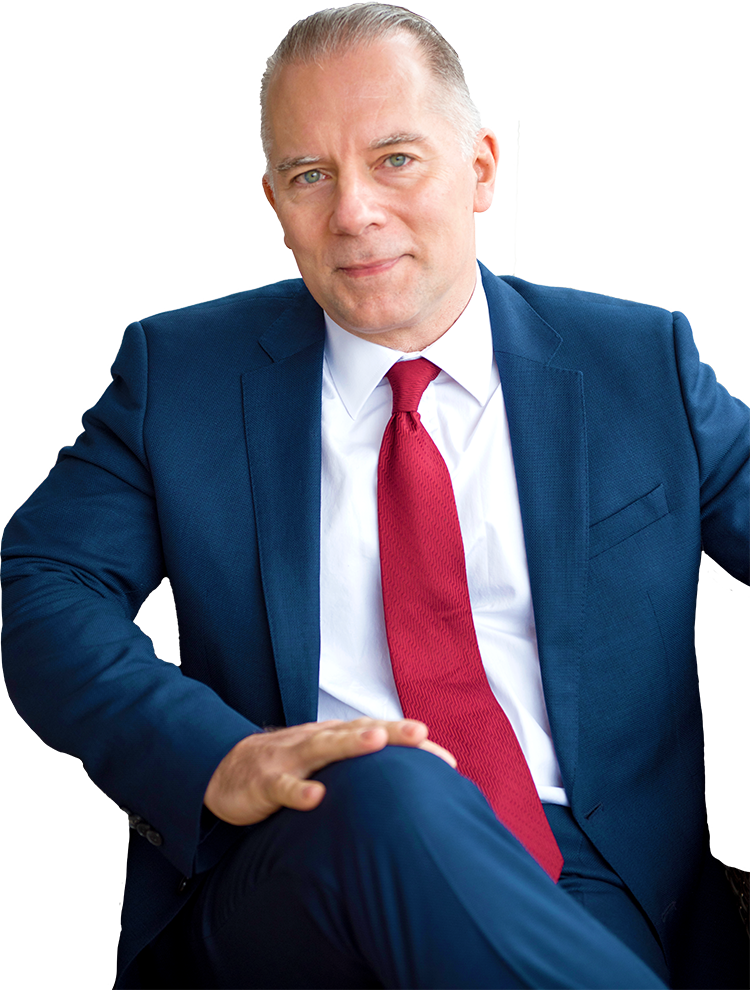Invest When There Is Blood in the Streets
- One of the best times to put your money to work is when there’s “blood in the streets.”
- Today, Nicholas Vardy explains why contrarian investing is the true way to wealth.
Say you’ve decided to become rich.
You may think the key is to be the founder of the next Microsoft or Google or eBay.
As it turns out, there is a far easier way to achieve your goal.
And it doesn’t involve setting up a business in your garage and winning the Silicon Valley lottery.
Yes, the transformation of startups to multinational corporations has minted many of today’s wealthy.
But there is an easier – and quicker – way.
As Baron Rothschild, an 18th-century British nobleman and member of the Rothschild banking family, advised about investing in the stock market: “Buy when there is blood in the streets.”
Rothschild knew what he was talking about.
He made a fortune buying in the investor panic that followed the Duke of Wellington’s defeat of Napoleon at the Battle of Waterloo.
The advice to invest “when there is blood in the streets” might be the single easiest and most effective way for you to make a fortune.
The Ultimate Contrarian Strategy
A story about buying stocks after the Battle of Waterloo in 1815 may seem irrelevant to your investment portfolio today.
But there are plenty of more recent examples of contrarian investors who made both themselves and their investors billions by following Rothschild’s time-tested advice.
Bill Browder
Bill Browder started his career investing in Eastern Europe after the fall of the Berlin Wall. I was one of his lawyers there.
He then shifted his attention further east, eventually becoming the biggest foreign investor in Russia.
For Browder, Russia in 1998 was, as Charles Dickens wrote, “the best of times, it was the worst of times.”
The Russian stock market had soared to never-before-seen heights, making Browder a fortune.
Then, the Russian stock market collapsed. Russia defaulted on its debt in August of that year.
Some Russian blue chips dropped 98% or more.
Investor sentiment could not have been worse. As one Western investor declared, “I would rather eat nuclear waste than invest in Russia.”
You couldn’t have asked for a clearer buy signal.
Browder told me that by October 1998, he was the only one left in his weekly poker game in Moscow. Fortune-seeking expats abandoned Russia in droves.
Everyone thought Browder was crazy for staying. But he stuck to his guns. Russian natural resource stocks were trading on 1% to 2% of the value of their Western counterparts. That meant that over the long term, there was only one direction they could go – and that was up.
Most importantly, Browder had the psychological stamina to tough it out during periods of gut-wrenching volatility.
His reward?
Browder’s fund, Hermitage Capital Management, recovered strongly over the next five years. And Browder pocketed more than $130 million in 2005.
Had you invested in Russia at the very bottom in 1998 – the same month that Browder’s poker-playing friends headed for home – you’d have made more than 60 times your money.
David Tepper
But you don’t have to travel as far afield as Russia for a heroic investment story.
Consider the case of U.S. hedge fund manager and fellow Pittsburgh native David Tepper.
Most investors were heading for the hills in February 2009. Meanwhile, Tepper was gobbling up Citigroup (NYSE: C) shares at an average price of $0.79.
His bet paid off handsomely. Tepper made $7 billion for himself and his clients that year. And his funds soared another eye-popping 120% in 2010.
Was Tepper just lucky?
Unlikely.
Over the following decade, Tepper’s funds far outpaced those of “one-hit wonder” hedge fund managers John Paulson and Kyle Bass, who had won big by betting on the housing collapse.
Today, Tepper is considered the greatest (human) hedge fund manager of his generation.
The new owner of the Carolina Panthers certainly earned the brass testicles that adorn his desk.
Sheldon Adelson
The most cited part of the Rothschild quote is to “Buy when there is blood in the streets.”
But it turns out that this is incomplete.
The original quote is believed to be “Buy when there is blood in the streets, even if the blood is your own.”
Las Vegas Sands founder Sheldon Adelson took that advice to heart.
Adelson was once the third-richest American behind Warren Buffett and Bill Gates.
But he saw his net worth fall from $28 billion in 2007 to just over $3 billion in March 2009. The share price of his casino empire, Las Vegas Sands (NYSE: LVS), collapsed from a high of $133 in October 2007 to a low of $2.28 in February 2009.
At the depth of the crisis, Adelson injected $1 billion of his own cash into Las Vegas Sands to keep it afloat.
That gave the company just enough breathing room to launch a $2.1 billion share sale in the U.S. It also organized a $2.5 billion listing of Sands China in Hong Kong. This subsidiary runs Las Vegas Sands’ Macao casinos.
Adelson showed instincts worthy of the world’s best gambler. He doubled down on his bets and pressed on with the Marina Bay Sands casino resort in Singapore.
Today, Adelson stands at No. 17 on the Forbes 400.
About Nicholas Vardy
An accomplished investment advisor and widely recognized expert on quantitative investing, global investing and exchange-traded funds, Nicholas has been a regular commentator on CNN International and Fox Business Network. He has also been cited in The Wall Street Journal, Financial Times, Newsweek, Fox Business News, CBS, MarketWatch, Yahoo Finance and MSN Money Central. Nicholas holds a bachelor’s and a master’s from Stanford University and a J.D. from Harvard Law School. It’s no wonder his groundbreaking content is published regularly in the free daily e-letter Liberty Through Wealth.






